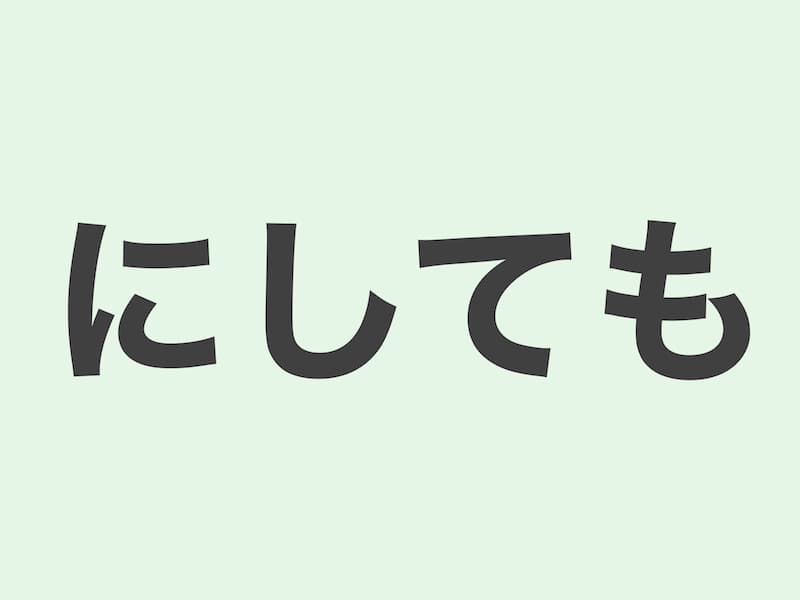説明 (Explanation)
文法(Grammar):普通形+にしても
意味 (Meaning):ある事実を認めながらも、それでもなお評価・不満・驚きを述べる ときに使います。
英語(English):It is used when you acknowledge a certain fact, but still express an evaluation, dissatisfaction, or surprise in spite of it. “Even if”, “Admittedly … but …”
JLPT Textbook Recommendations
例文 (Examples)
- 勉強ができないにしても、0点は低すぎる。
- デザインがいいにしても、高すぎる。
- 千円にしても、高いし、品質が悪い。
- 今日はクリスマスだけど、それにしても、混みすぎだ。
- 夏だけど、それにしても、暑すぎる
ひらなが (Hiragana)
- べんきょうができないにしても、0てんはひくすぎる。
- デザインがいいにしても、たかすぎる。
- せんえんにしても、たかいし、しつりょうがわるい。
- きょうはクリスマスだけど、それにしても、こみすぎだ。
- なつだけど、それにしても、あつすぎる。
英語翻訳 (English Translation)
- Even if you can’t study, zero points are too low.
- Even if the design is good, it’s too expensive.
- Even at a thousand yen, it’s expensive, and the quality is poor.
- Today is Christmas, but still, it’s too crowded.
- It’s summer, but still, it’s excessively hot.





コメント